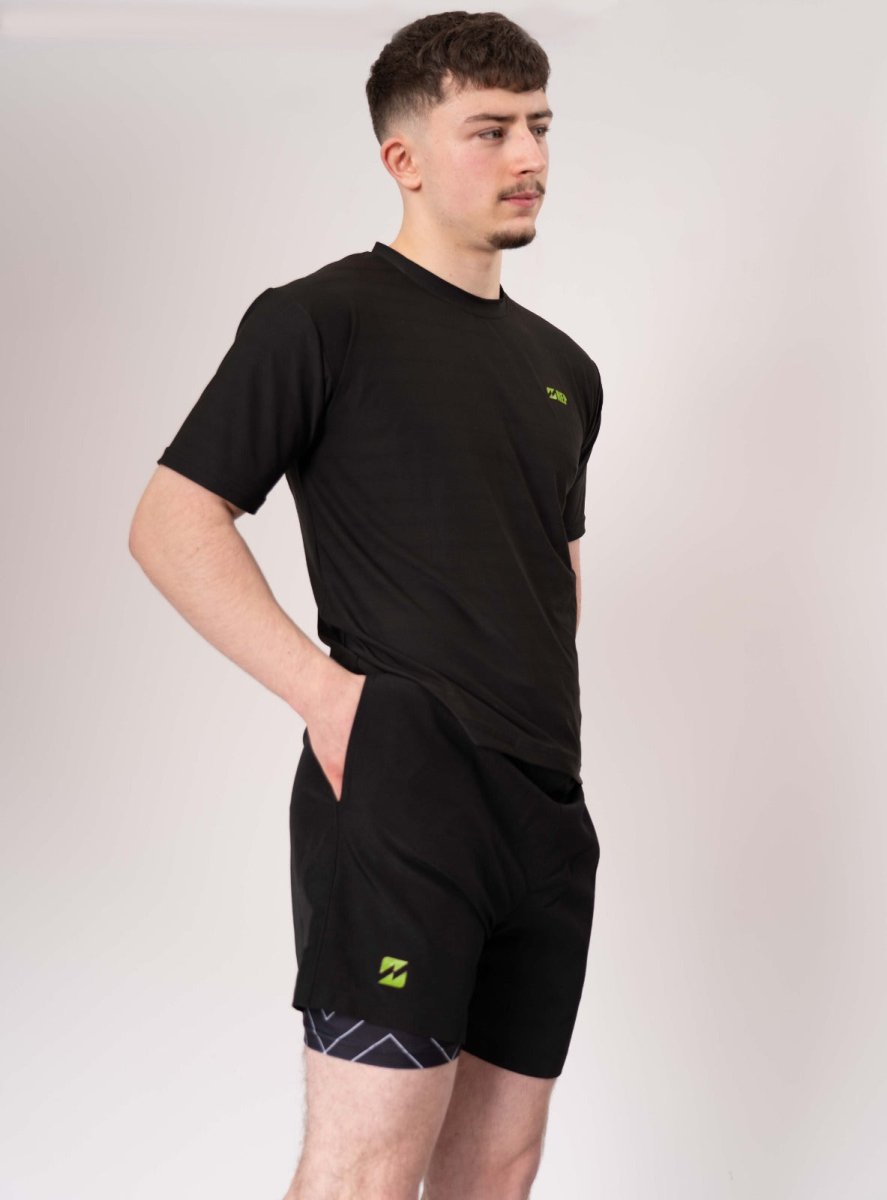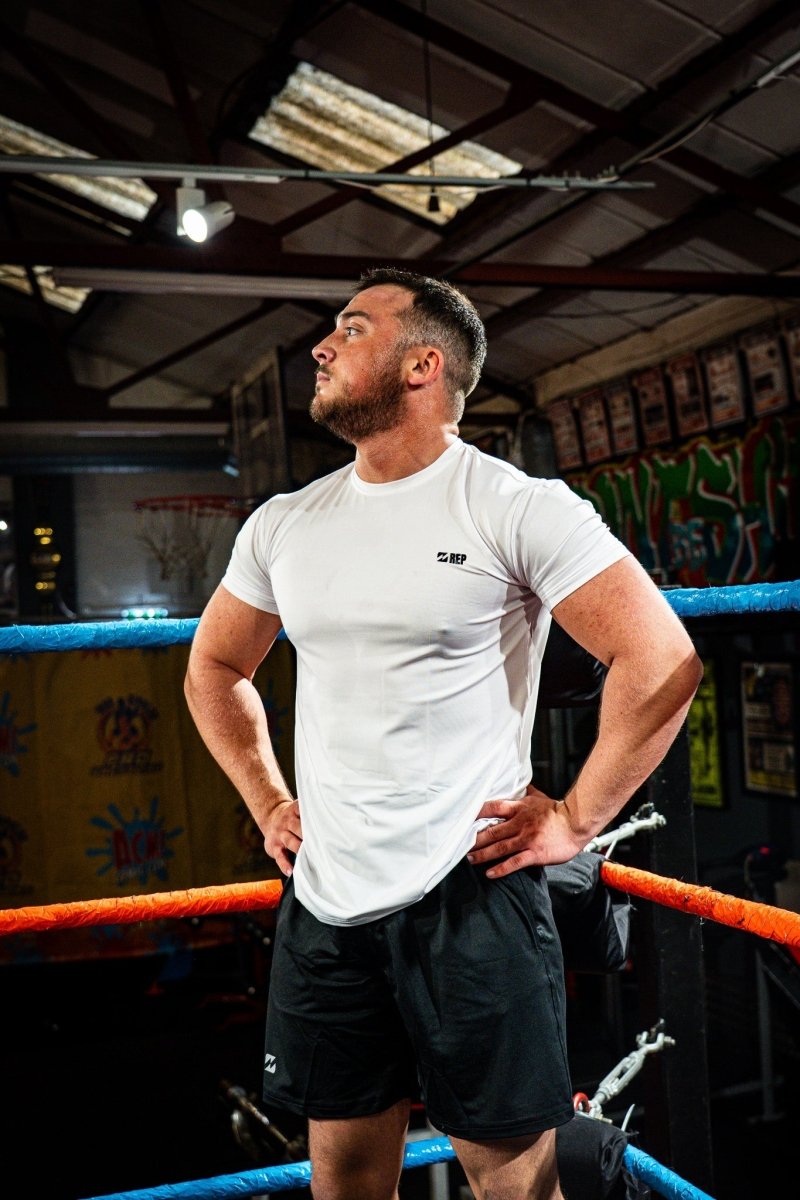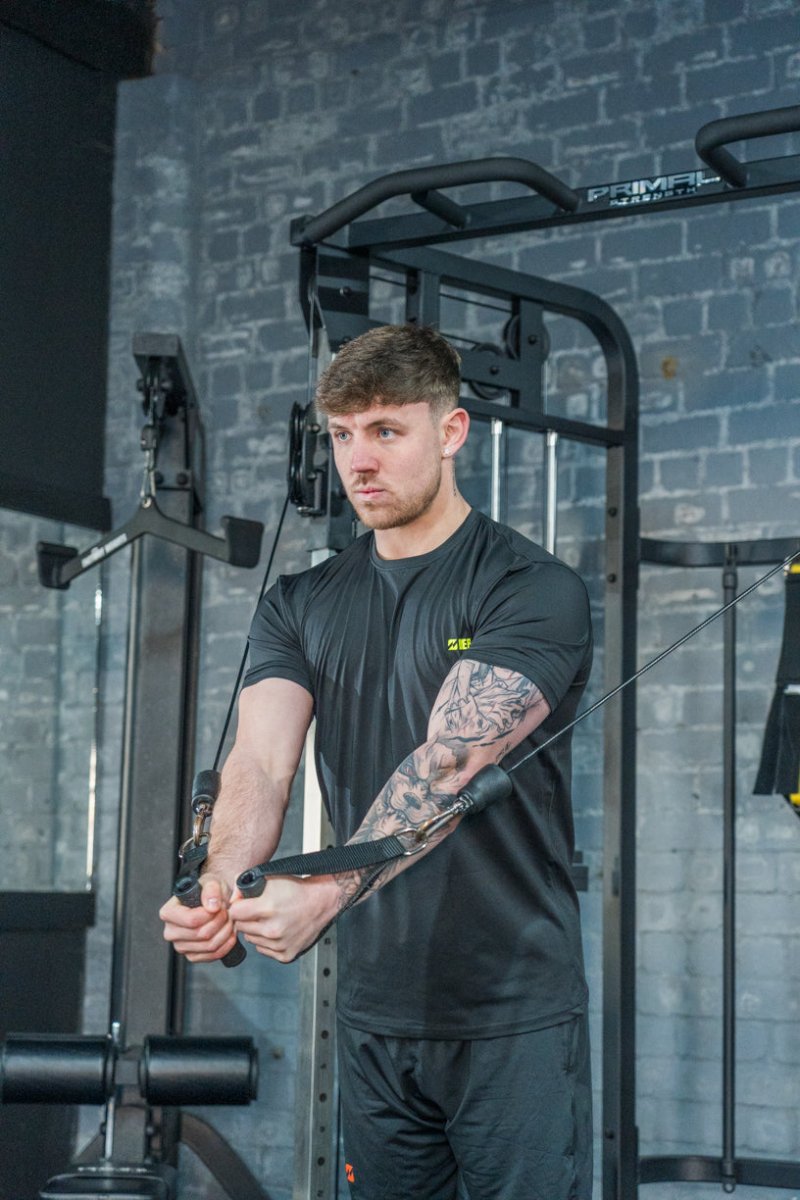
What Clothes To Wear To The Gym [2025]
Wondering what clothes to wear to the gym is more than just a style decision. The kit you pick can directly impact performance, safety, and even how motivated you feel to train. UK gym-goers aged 18–35, especially those who are into strength and endurance, need gear that works as hard as they do. It’s about feeling confident, staying comfortable, and keeping your body safe — all while smashing your workouts.
Whether you’re lifting, running, or doing HIIT, having the right layers makes all the difference. Your gym wear should help manage sweat, prevent injury, and support full range of motion. The British Nutrition Foundation points out that getting active in the right attire can boost your confidence and make you more likely to stick with regular exercise. No matter your fitness level, what you wear is part of your foundation for gym progress.
- Improves comfort and regulates body temperature
- Reduces risk of skin irritation or injury
- Boosts motivation and self-esteem while training
- Supports safe and effective performance
What Clothes To Wear To The Gym: Gym Etiquette
Most commercial and independent gyms across the UK expect members to dress appropriately. This isn’t about fashion; it’s about hygiene and safety. The NHS underlines that wearing the correct gear reduces risk during physical activity, especially in shared environments. While strict dress codes are rare, there are common-sense expectations:
- Avoid wearing jeans, everyday trousers, or shoes with hard soles
- Clean trainers are often required
- Tops and bottoms must allow for complete freedom of movement
- Tops are usually expected to cover the chest
- No muddy or outdoor footwear inside the workout space

Many gyms post dress codes and hygiene policies on their walls or membership packs, so give these a quick read. Some boutique gyms may specify what not to wear — like crop tops or open-toed shoes. For most, common sense and respect for hygiene is key.
Gym etiquette covers more than clothing choice, but the wrong attire could easily disrupt others’ workouts. Steer clear of strong colognes or perfumes and avoid anything that could snag equipment or make noise, like clunky zip fastenings.
- Choose clean, washed kit for every session
- Bring a towel for wiping down equipment
- Keep layers close to hand if transitioning from gym floor to outdoors
Looking sharp doesn’t mean being the centre of attention; it’s about contributing to a positive, distraction-free training space.
Choosing What Clothes to Wear to the Gym: Material, Fit, and Function
Quality fabrics play a massive role in handling sweat and maintaining comfort. According to NHS exercise guidelines, regular physical activity requires clothing that wicks away moisture and allows your skin to breathe. Avoid anything cotton-heavy, as it tends to hold onto sweat, making you feel soggy during longer sessions.
- Look for lightweight, sweat-wicking materials
- Fabrics should stretch to allow dynamic movement
- Consider layers for temperature regulation, especially in cooler gyms
Light layers let you adjust to changes, whether you’re smashing cardio or taking a breather. Mesh or ventilated panels can also help with air flow, reducing risk of overheating.
Kit that fits well supports your body in every movement. Too tight, and your range is limited; too baggy, and you risk snagging on equipment or tripping. Tailored clothing makes it easier to check your form in mirrors, crucial for lifts and functional workouts.
- Choose items that offer flexibility for squats, lunges, and presses
- Opt for comfortable waistbands or adjustable designs
- Make sure tops stay put during overhead moves or dynamic stretches
The right fit can also boost your mental focus — you’re not distracted by constant readjustment and you feel confident tackling every set.
Gym Wear for Strength Training, Cardio, and Classes
Strength sessions are all about controlled movement, stability, and long sets. Your gear should allow you to deadlift, squat, and bench press without restriction. Ensure materials support these compound moves and offer stability, especially for joints.
- Eliminate loose, dangling strings or loose-fitting clothing that can catch
- Ensure grip with shoes that have steady, flat soles
- Opt for breathable tops that keep your core temperature balanced
Grip and support go hand-in-hand. Good kit lets your muscles work, not fight against the fabric.
Cardio and Conditioning: Manage Heat and Moisture
Cardio means sweat. Whether you’re on the rowing machine, treadmill, or in a HIIT circuit, you need gear that handles major temperature shifts and sweat output. The British Nutrition Foundation advises kit that dries quickly and prevents chafing.
- Opt for sweat-wicking tops and shorts
- Compression designs can help reduce muscle fatigue
- Seamless stitching helps avoid rubbing and skin issues
Layers are helpful on the way in or out — a light sweatshirt over your tee can prevent chills post-session.

Group Classes, Circuits, and HIIT
For fast-paced classes, you want kit that stays put. You’ll be jumping, twisting, and stretching in every direction. Secure waistbands, fitted sleeves, and materials that move with you make a big difference.
- Choose breathable, stretch-focused materials
- Minimise zips and pockets to stay streamlined
- Go for kit that’s quick to wash and dry, ready for your next class
Need more gym class tips? Check out our guide to group fitness classes for extra support.
What Clothes To Wear To The Gym: Clothing Pitfalls
Everyone’s seen dodgy gym outfits — thick jumpers, baggy polos, or old styles that don’t cut it for a serious training plan. There’s a reason certain styles fall out of favour: they restrict range, fail to manage sweat, or risk embarrassment during key lifts.
- Avoid all-cotton kit: holds sweat and causes rubbing
- Skip oversized items: more likely to catch or trip you up
- Say no to tight belts or waistbands that dig in
- Don’t forget proper, well-fitted footwear
Mishaps like slipping trainers or exposed skin aren’t just awkward — they’re unsafe. Taking two minutes to check your outfit before leaving the house is worth it, both for performance and peace of mind.
Training kit takes a beating with each session, so proper care matters. Always check care labels for washing instructions. Quick-drying sports fabrics are handy, but still need regular washing after every session to prevent odours and maintain performance.
- Wash kit in cool water to protect fabric structure
- Avoid heavy fabric softeners — they can damage sweat-wicking properties
- Air dry to prevent shrinking or distortion
Keep a rotation of clean items so you’re never caught off guard before a session.
Want advice on what else to keep handy? Hit up our gym bag essentials guide for more info.
What Clothes To Wear To The Gym: FAQs
What Clothes to Wear for Beginners?
If you’re new to the gym, stick with basics that feel comfortable and offer stretch. You don’t need high-tech kit to start. Focus on breathable, lightweight fabrics and get familiar with what feels best during different workouts.
- Start with fitted but not tight tees and shorts or leggings
- Avoid restrictive materials until you learn your favourite moves
- Prioritise ease of washing and drying
What About Outdoor Sessions?
Outdoor training needs a different approach. Dress in moisture-wicking base layers, with wind- or water-resistant outerwear in cooler months. Protect exposed skin and make sure you can adapt your outfit as your temperature rises mid-session.
- Layer up but keep bulk to a minimum
- Wear a hat or headband to control sweat and temperature
- Bring a spare layer for heading home
Are Headphones, Accessories, or Jewellery Allowed?
Most gyms are relaxed with wireless headphones, but it’s best to take off jewellery or accessories before hitting the weights. Rings, bracelets, or necklaces can catch or get damaged. Consider a secure, zip-free pocket if you train with a locker key.
Whether you’re focused on muscle, cardio, or group classes — what clothes to wear to the gym can set the tone for every session. Prioritise comfort, safety, and function. The confidence boost you get from wearing kit that does the job is unbeatable.


